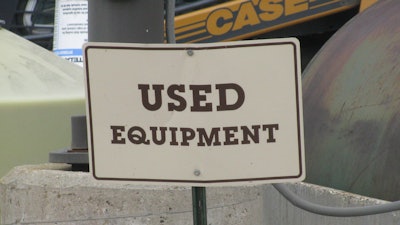
For many companies, purchasing equipment in December is a yearly event. This is due to construction companies trying to reduce their tax burden by making equipment purchases they can write off using Section 179.
Since the Section 179 deadline is December 31, there’s always a rush to get these purchases in. Hence, it makes for a busy December for many organizations (ours included).
But 2021 is not a good year to wait, as I’ll explain in a moment.
Waiting Until December is Common
Before I go any further, let me quickly go over what Section 179 is. It is the tax deduction that allows companies to write off the full purchase price of qualifying new and used equipment purchased during the calendar year. Companies can deduct the total of all eligible equipment purchased during the year, up to $1,050,000 in 2021. This makes Section 179 very attractive, since the company gets needed equipment and a nice tax write-off at the same time. For more information about Section 179, visit www.irs.gov or www.Section179.org.
While almost any equipment bought during the year will qualify, many companies will wait until later in the year, typically November and December, to make specific and/or larger Section 179 purchases. The reasons for this are many. For some companies, the end of the year simply sneaks up on them and they don’t want to lose out. Others may want to see how the year is going to look on paper. If the numbers look good, let’s buy that expensive backhoe (etc.) now and take the full deduction.
As long as the qualifying equipment is purchased and put into service by midnight on December 31, a company is eligible to take the deduction.
The 2021 Dilemma
However, in 2021, many companies that wait until December to make their Section 179 purchases may find themselves shut out – or worse, paying for the equipment but not getting to write it off.
The problem is the “put into service” part of the deadline. This means any equipment you buy must be installed, assembled, plugged in, gassed up or whatever else “put into service” means for that piece of equipment. If that doesn’t happen, it’s not eligible for the deduction.
In other words, buying the equipment isn’t enough. It has to be put into service.
And of course, this last part could be a problem, because depending on the equipment you buy, you may have to wait longer for it than you expect. Between pandemic-influenced raw material shortages, delivery issues, port closures and labor shortages, supply chains have taken a hit in 2021.
One challenging aspect is the delays are hard to predict. A manufacturer might be waiting for only one key part, but that part will take another month, holding up an entire line of products. Others might have the products ready to ship, but their carriers are backed up. It’s frustrating for everyone.
Tips to Avoid Missing Out
Right now, there are no plans to make any amendments to Section 179 to account for supply chain slowdowns. And I can predict there will be plenty of companies that are going to pay for/finance goods in 2021 and a late shipment will cause them to miss out on the deduction they were counting on.
Do not let this happen to you. Here are a few tips to avoid missing out on a 2021 Section 179 deduction: ACBM staff
ACBM staff
- Make your Section 179 purchases earlier. If you normally wait until November/December, maybe bump that up a month or two, if possible.
- Buy “in stock” goods and avoid special orders. Anything you can do to get your equipment earlier will help.
- Consider used equipment. Section 179 can be used on eligible used/preowned equipment; as long as it’s new to you, it’s fine. And the advantage of used equipment in this regard is obvious – it’s ready to go right now.
Yogi Berra was right: It gets late early out here. Deadlines have a way of sneaking up on us. And this year, it’s more important than ever to pay attention to the Section 179 deadline.
All views expressed in this article are those of the author and do not necessarily represent the policy or position of Crest Capital and its affiliates.



























